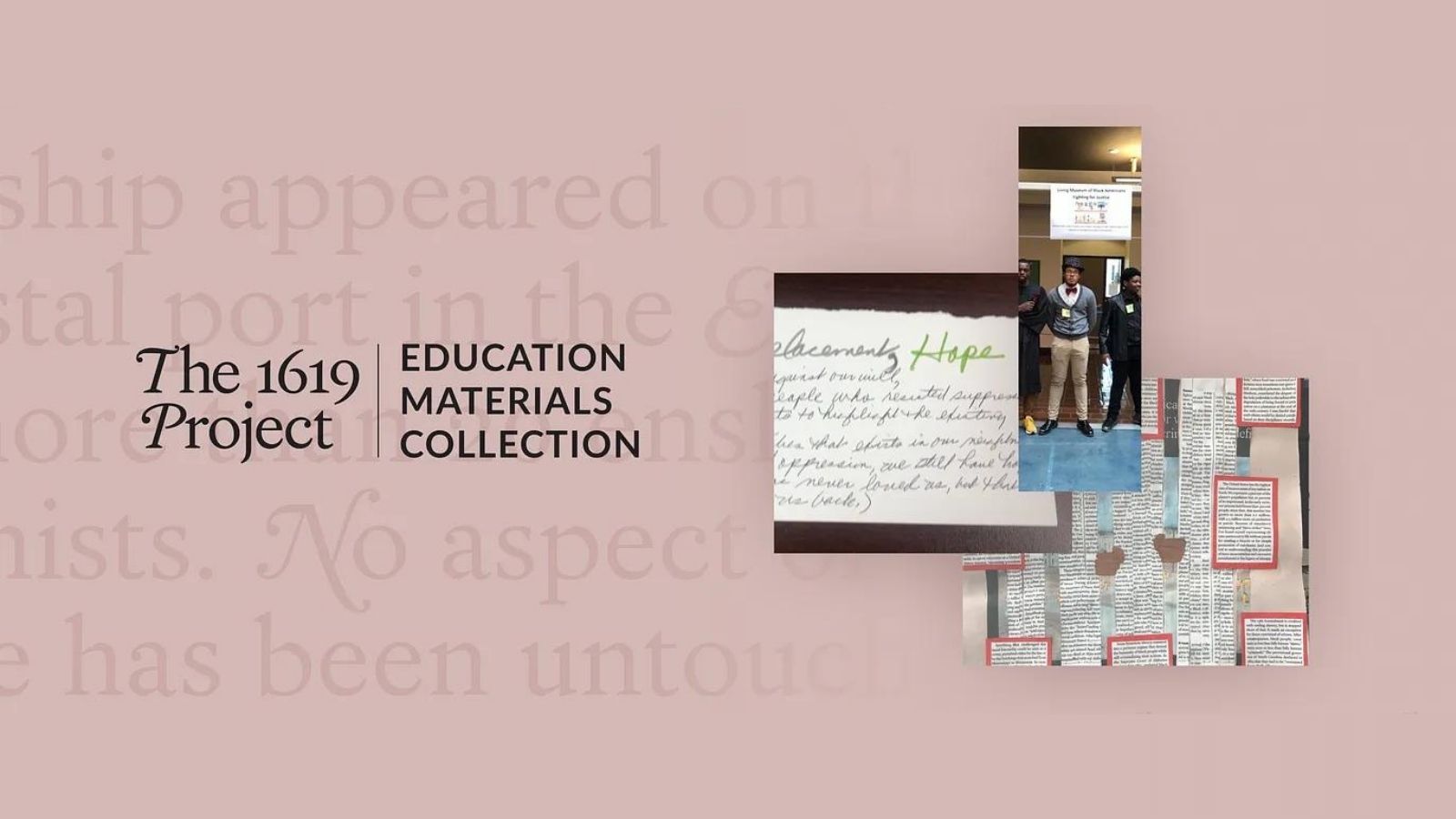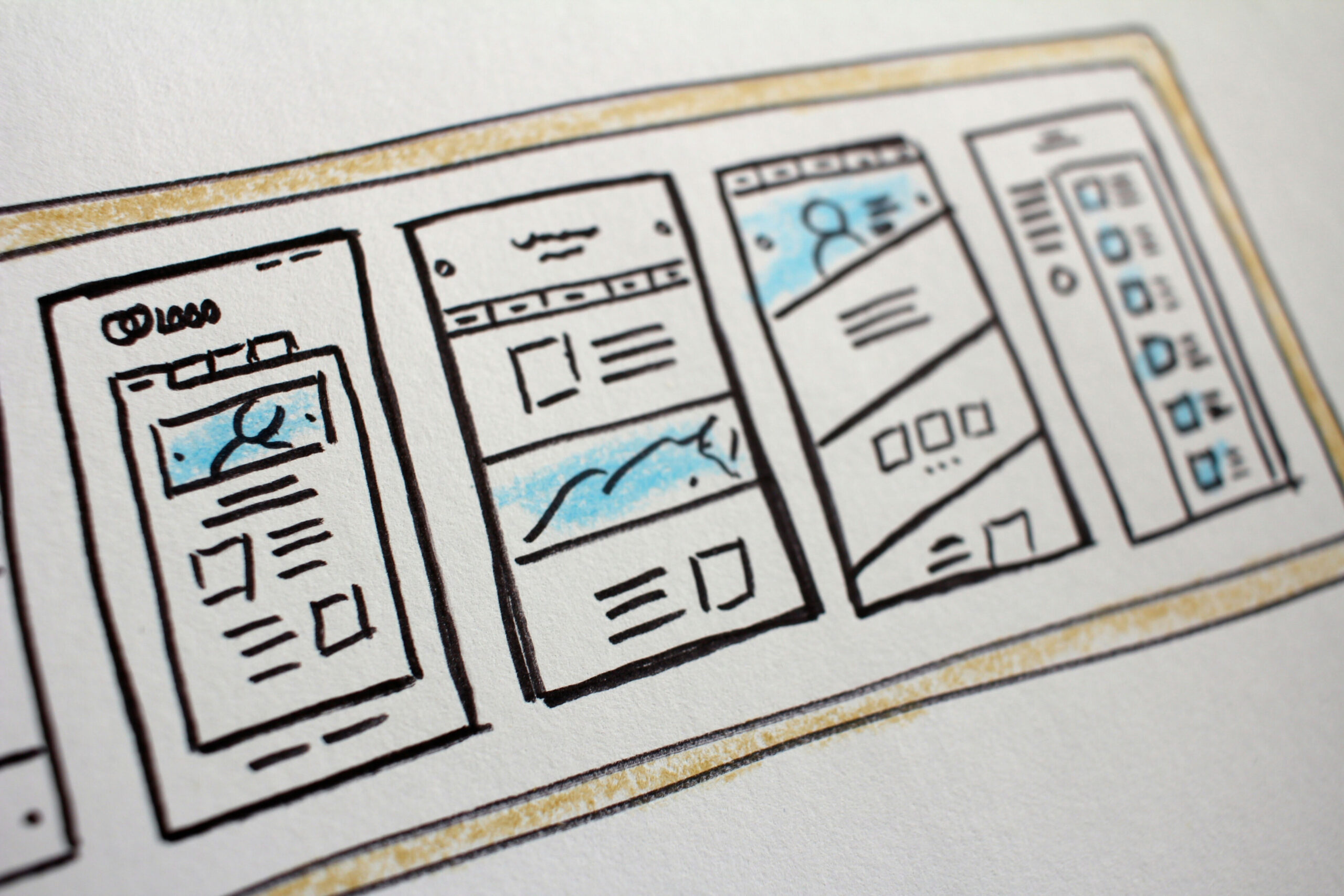
« Insights
Learning from 1619
Threespot worked with the Pulitzer Center to create 1619education.org.
The 1619 Project has significantly changed our understanding of our American story. We are a country born out of slavery, the lasting effects of which are felt still today, over 400 years since the first captive Africans arrived in the Virginia Colony. In partnership with The New York Times, our client, the Pulitzer Center, has organized The 1619 Education Network, a learning community designed to create and share curricular resources based on this seminal project.
To support this community and disseminate its tremendous resources, Threespot worked with the Pulitzer Center to create 1619education.org. On this portal, teachers can find curricula, reading guides, podcasts, and ways to connect through webinars. Lesson plans and activities help students think about sharing a national identity and a complex history. They also invite students to reflect on their cultural identity and build empathy.
The site was launched to coincide with the release of Nikole Hannah-Jones’ book The 1619 Project: A New Origin Story, which expands her original 1619 collection by weaving together new essays and creative works that illuminate crucial moments of origin, oppression, struggle, and resistance.
The 1619 Project has become a hot topic of debate and has met some fierce backlash from angry, politically-motivated groups at school board meetings across the country. It has been embroiled in the manufactured controversy over the alleged teaching of critical race theory in K-12 classes, with calls by some legislators to ban the book and its ideas from being taught in schools.
While this fomented rage is alarming, it highlights how powerful and necessary this project is. To overcome the deep roots of systemic racism, we must confront the full history of our nation’s past. The best counter to the criticism comes from seeing the incredible student response in their classwork. Lessons taught from the 1619 curricula sparked meaningful discussions among students on race, identity, hope, determination, and community. They are learning compassion and building their skills in critical thinking while learning a more holistic, nuanced history than many of us were taught in grade school. It’s motivating to see the phenomenal student poetry, short fiction, art, and music inspired by the 1619 essays. Dignity, self-esteem, healing, and hope are precisely the lessons we need our young people to learn now to open up possibilities of equity and justice in the future.
The 1619 Project places the consequences of slavery and the contributions of Black Americans at the center of our national narrative. For the first time, students and teachers have a scholarly framework to consider the paradoxical truth that our country, purportedly founded on the principles of freedom, participated in the horrific, legal enslavement of people. Jake Silverstein, editor-in-chief of The New York Times Magazine, reminds us why this work is so consequential:
American history cannot be told truthfully without a clear vision of how inhumane and immoral the treatment of Black Americans has been. By acknowledging this shameful history, by trying hard to understand its powerful influence on the present, perhaps we can prepare ourselves for a more just future. That is the hope of this project.
It’s been an honor to be part of this landmark project working with the Pulitzer Center and our development partner, Inclind, to help students better understand themselves and our country through a more nuanced telling of our history.




